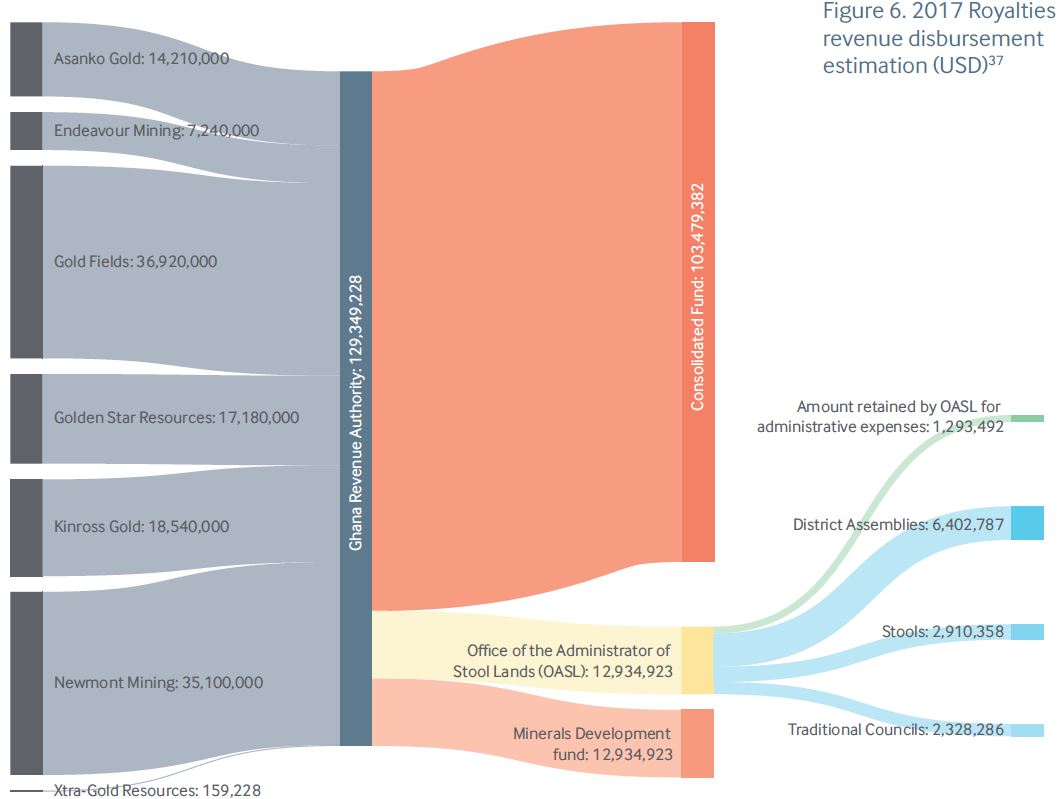
Ghana’s Gold Mining Revenues: An Analysis of Company Disclosures
In Ghana the majority of international mining companies, including Asanko Gold, Golden Star Resources, Endeavour Mining, Kinross Gold, Perseus Mining and Xtra-Gold Resources, have disclosed payments-to-governments reports under the Extractive Sector Transparency Measures Act (ESTMA) in Canada. In addition Gold Fields, AngloGold Ashanti and Newmont Mining have made voluntary disclosures regarding the payments they make to the Ghanaian government.
With the introduction of the Extractive Sector Transparency Measures Act (ESTMA), extractive companies incorporated or listed in Canada are now required to disclose their payments-to-government entities. These newly released payments-to-governments reports provide timely information on the payments mining and oil and gas companies make to government entities. Companies must categorize payments into one of seven payment types, such as taxes and royalties. They must also report which government entity receives the payment, and must break down the payment data by project, where applicable.
Focusing on the gold sector, the aim of this briefing is to explore ways company disclosures can be used by government, civil society, media and other oversight actors to better understand the revenues generated within Ghana’s gold sector and use this new data source as an accountability tool within the country.
The dataset used for the analysis in this briefing has been made available on Resourcedata.org and the payments-to-governments data covered in this briefing are available on ResourceProjects.org.

